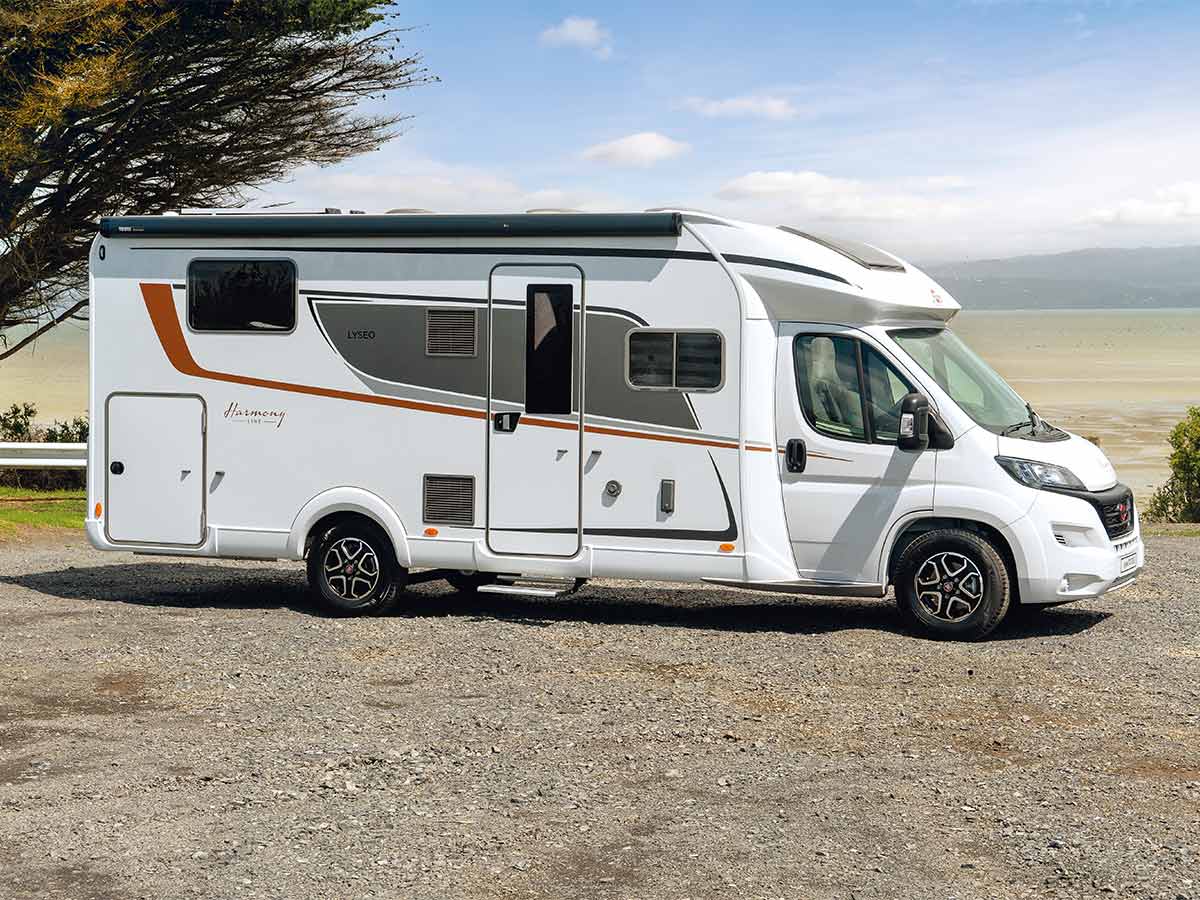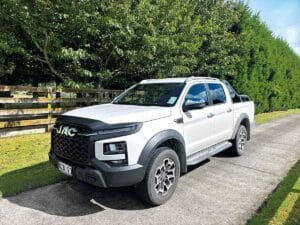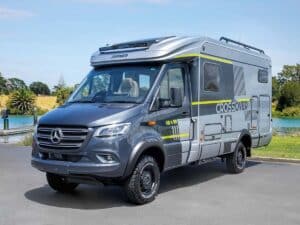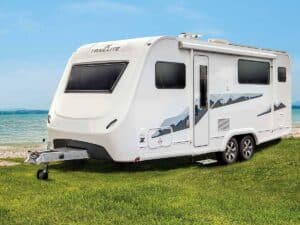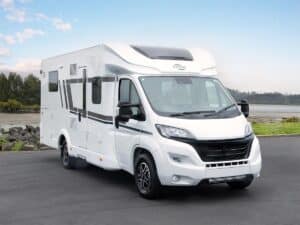While at first glance the Bürstner Lyseo TD 736 might resemble one of many universal European motorhomes from the outside, a closer look quickly reveals several points of difference and a range of unique features inside. Paul Owen reports.
Salespeople call the things that separate one product from its rivals USPs – unique selling points. This Bürstner Lyseo TD 736 has one USP in particular that I’ve never encountered before in a semi-integrated motorhome measuring a highly popular 7.5 metres in length.
This is the height-adjustable island bed in the back, which can easily be wound up or down thanks to the useful height of the garage compartment beneath the bed allowing a variation of 26cm. This is also handy if you need extra height for stowing larger items.
At times when that extra garage height is surplus to requirements, the bed can be kept in a low position to facilitate easier access and egress. Such versatility means the bed can be tailored to the occasion in other ways too.
The end section can be raised to provide a backrest when sitting up, and the mattress can also be pushed backwards to provide freer movement around the bedroom when the bed isn’t in use. Bürstner’s memory foam mattress and hinged aluminium frame base with sprung wooden slats ensure that it’s a comfy place to rest.
So add the adaptive island bed of the TD 736 to USPs shared with other Lyseo Harmony Line models, such as the coffee capsule racks in the kitchen, the lockable drop-down bed that can’t self-deploy itself at precisely the wrong moment, and the wider-than-normal entry door (complete with a window, a rubbish bin, and a little portable electric lantern that recharges itself when stowed in the appropriate place).
Like most Bürstner motorhomes, and especially those of the Lyseo Harmony Line range, the TD 736 is just that little bit cleverer in its design than most of its rivals.
Sweet dreams
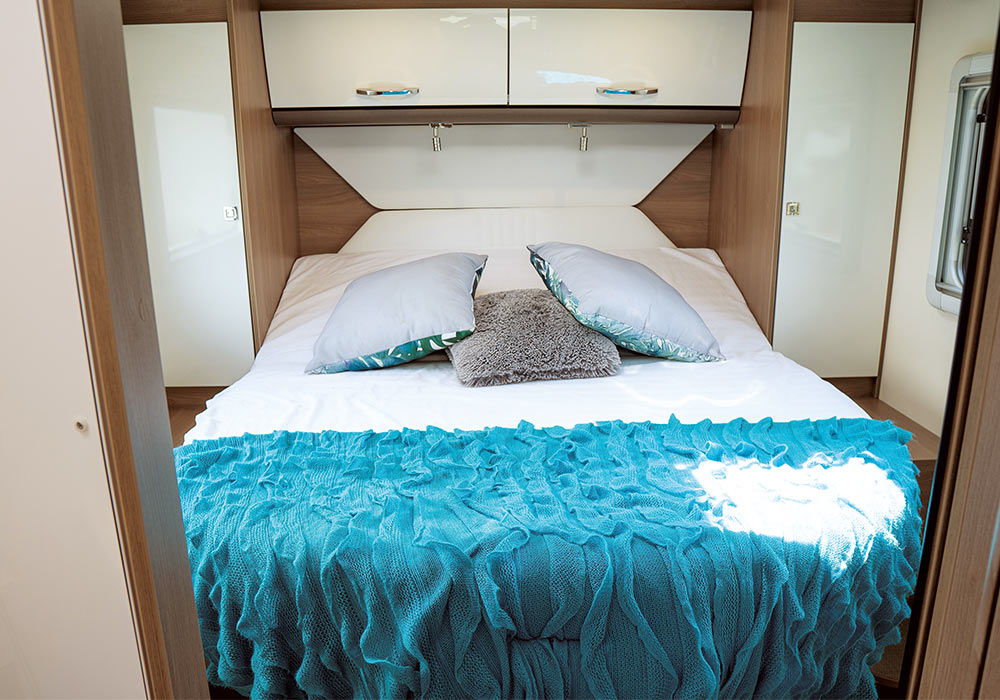
Sorry, but I haven’t finished with that height-adjustable bed yet. Perhaps every motorhome equipped with a rear island bed should have one such as this particularly impressive version.
Some couples will probably leave the bed in the highest position to maximise the available garage space permanently, but just imagine the benefits for the not-so-agile of being able to lower the height of the entry point to a night’s rest by 26cm. This makes for a semi-integrated motorhome that might allow some nonagenarians to keep travelling on instead of steering towards a sedentary afterlife cooped up in a rest home.
Lowering the bed is a relatively easy process and is mostly done from the right-side garage door. First, you lower the bedframe supports on either side after unbuckling them from their horizontal stowage position. Then you attach a winder to the winch and lower the bed down so the supports come into contact with the garage floor. To raise the bed, repeat the process in reverse. The hinged supports are stored horizontally so they don’t impede the stowage of large items, such as bicycles and inflatable watercraft. The final act of any bed height adjustment is to return the winder to its handy mounts on the rear wall of the garage.
No matter the height of the island bed, it’s relatively easy to climb aboard, thanks to an ascending number of stepped storage compartments on either side. Above these are a wardrobe on one side and a shelved cupboard on the other.
With the head of the 190 x 145cm queen bed raised to provide back support, this island bed is made for relaxation, either watching the TV on the left side wall or enjoying the view out of the largest side windows of the TD 736’s body.
Well-placed options
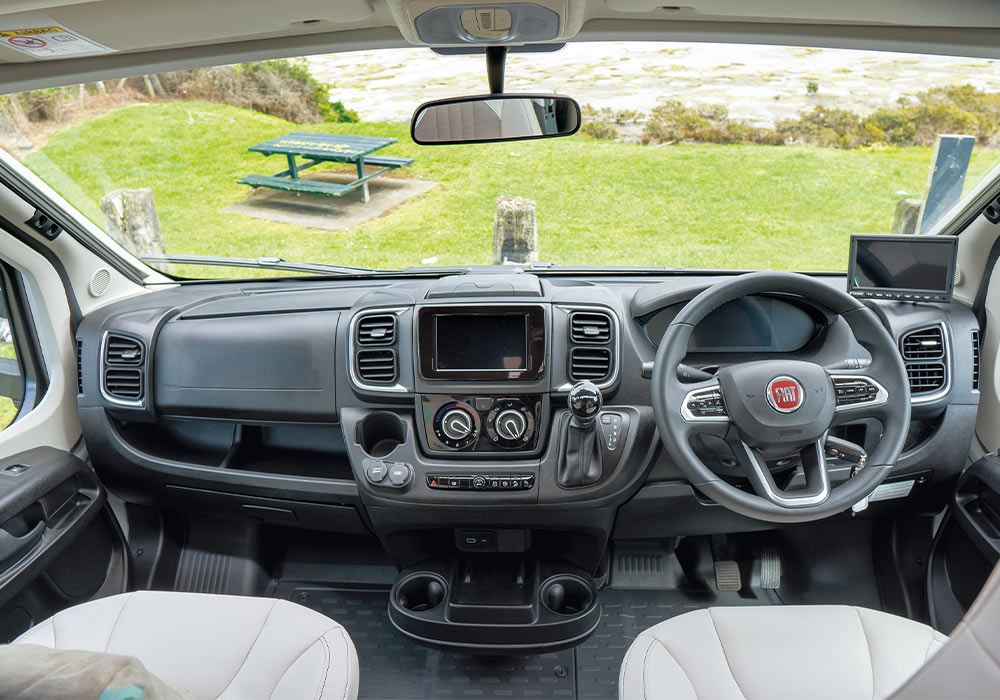
Taller folk will appreciate that the drop-down double bed above the lounge area offers a further 10cm of length at 200 x 135 cm. This bed also goes up and down, this time at the push of a convenient button. A little lounge prep is needed if the forward-facing travel seats have been recently used. The backs of these must be detached and stowed away in the garage, and then the backrests of the face-to-face bench seats on either side of the lounge must be folded down. It takes around five minutes to ensure that the lounge is in a configuration where the bed can be fully lowered, and the process will no doubt soon become part of the bedtime routine if both beds are required while on tour.
As mentioned, the drop-down bed can be safely locked in the stowed position. It’s probably common practice among Bürstner Lyseo owners to leave the key in the lock. I’d be inclined to put the key on the motorhome’s ring of locker keys to prevent it from getting bent in the lock perhaps by coming into contact with an unexpected obstacle during the lowering process. For restless sleepers who might roll out of the drop-down during slumbering, Bürstner has stowed a couple of safety nets beneath the memory foam mattress. These can be erected before heading towards the Land of Nod. There’s also a ladder conveniently located, ready for slotting into the kitchen side of the bed.
Transverse kitchen
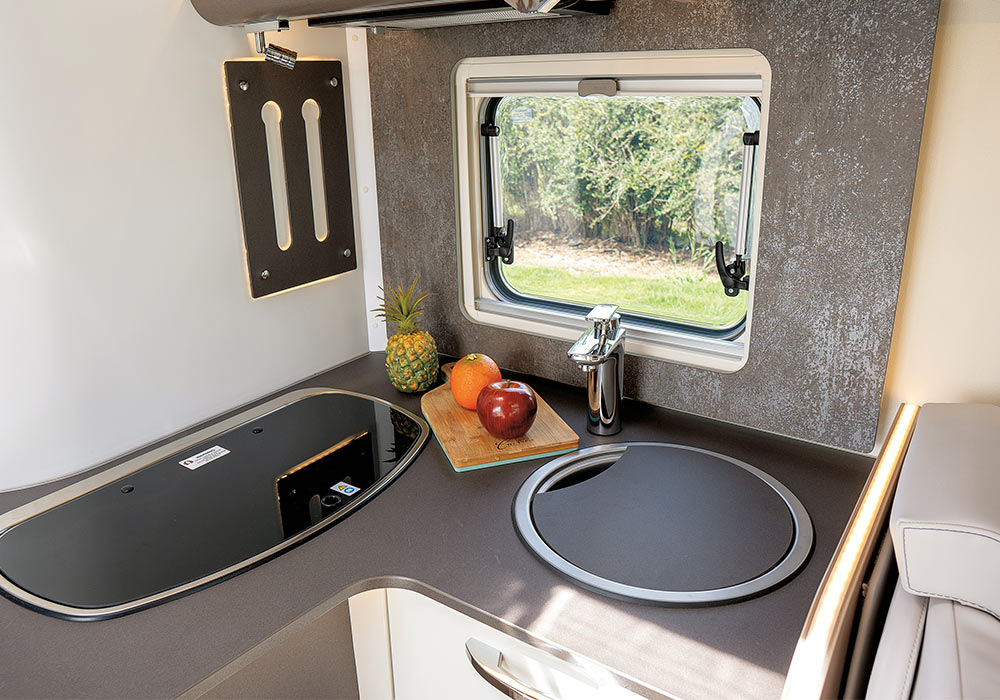
Bürstner’s use of an L-shaped kitchen has allowed the company’s designers to mount the three-burner gas hob transversely across the motorhome body. Mounting it longitudinally would have consumed a lot more potential bench space, and the kitchen is more of a cockpit with the chef du jour standing in the apex of the ‘L’ with cooking facilities on one side, and the sink, bench space, a small oven/grille, and a couple of drawers on the other.
Across the aisle is a clever 133-litre absorption fridge with a 12-litre freezer drawer that can automatically identify the most efficient power source for the camping situation and use that instead of others. It’s intelligent design and intelligent use of space.
There’s plenty of quality cabinetry on display in the generous overhead lockers that soft-close on their well-engineered hinges. The drawers slide smoothly on their metal runners, also soft-close, and then give a satisfying ‘click’ as they self-latch.
And the entire area is finished with the equally well-designed transverse lounge. This has been a real game changer for the Harmony Line models, making a huge difference to the spaciousness of the lounge. If you ever do need to take passengers and require the travel seats, it’s a relatively straightforward process of just minutes to put these into place.
Precise construction
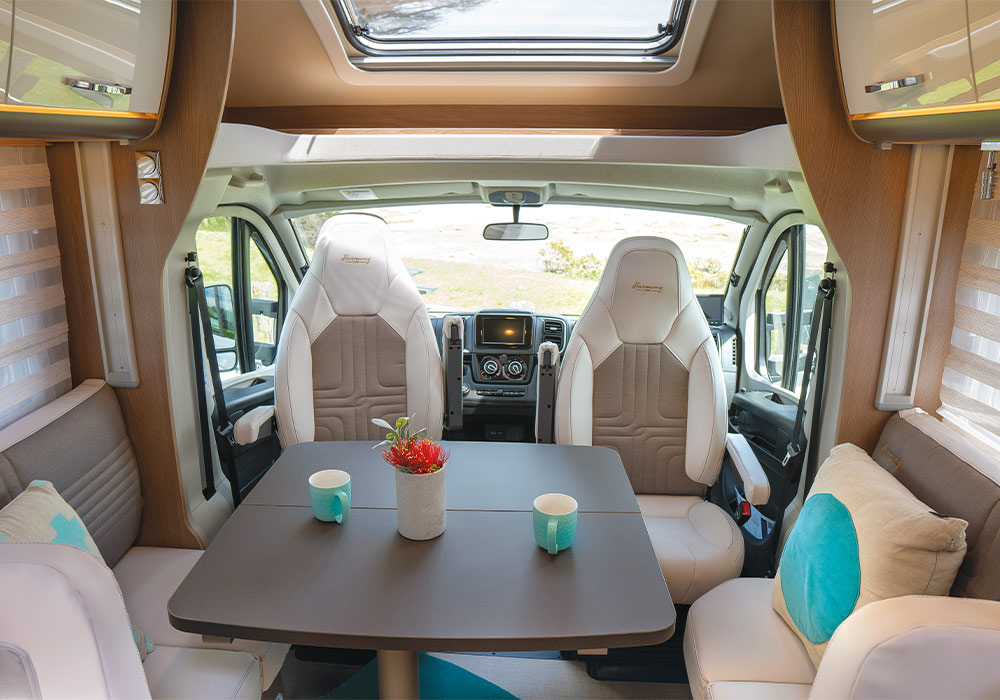
As part of the mighty Erwin Hymer Group, Bürstner motorhomes are built to a high standard, and the proof is in the lack of noise inside the cabin when travelling along New Zealand roads. Even the corrugated gravel road leading to the photo location couldn’t faze the Bürstner’s ability to impart an impression of unruffled refinement.
Two things promote this noise suppression: the double-floor base of the motorhome and the high level of insulation. The parts between the floors that aren’t used for additional storage compartments are filled with a 41mm thick layer of insulation and the aluminium-skinned GRP (glass-reinforced polystyrene) panels for the roof and walls feature a 30mm thick insulation core. The double-glazed windows complete the thermal efficiency of the Bürstner motorhome body, giving the Truma Combi 6E (gas and electric operation) cabin and water heater an easy job of heating the cabin in winter.
The precise build of the Bürstner is best inspected in the junctions where the motorhome body meets the metal components of the Fiat Ducato cab chassis that provide the platform for the build. These joins are seamless and are matched by the precise fit of the gas and toilet cassette locker doors, and the dual portals that provide access to the garage.
Bürstner retains the complete Fiat chassis, adapting it to carry the wider motorhome body through the fitting of a longer rear beam axle. It’s a successful strategy, particularly in terms of the suspension performance on New Zealand roads and the more torsionally-rigid platform could also contribute to the cabin noise suppression. New Zealand-bound TD 736 models come standard with the optional Gross Vehicle Mass (GVM) rating of 4250kg available in Europe and have a tare weight of 3355kg, which allows a decent payload of 895kg, one of the highest for a semi-integrated motorhome of this length.
Naturally, the Ducato used is one of the new eighth-generation versions with its more efficient 2.2-litre turbo-diesel engine pumping out 160hp and 400Nm of driving force. Hooked to a well-calibrated nine-speed automatic gearbox, the new motor uses 10% less fuel than the superseded 2.3-litre engine that it replaced according to Fiat. It’s also lighter, a quality that adds extra poise to the handling of the Bürstner.
The expanded suite of electronics for the latest Ducato allows the TD 736 to have a central 10-inch touchscreen with Apple CarPlay and Android Auto, and driving aids such as Crosswind Assist, Hill Holder, and Traction Plus – where the front brakes are applied individually to help the tyres gain traction during take-offs on slippery surfaces. There’s also Emergency Braking Assist, Electronic Stability Control, traffic-sensitive Cruise Control, Traction Control, and an automatic engine Stop/Start system helps reduce fuel use.
Independence Day
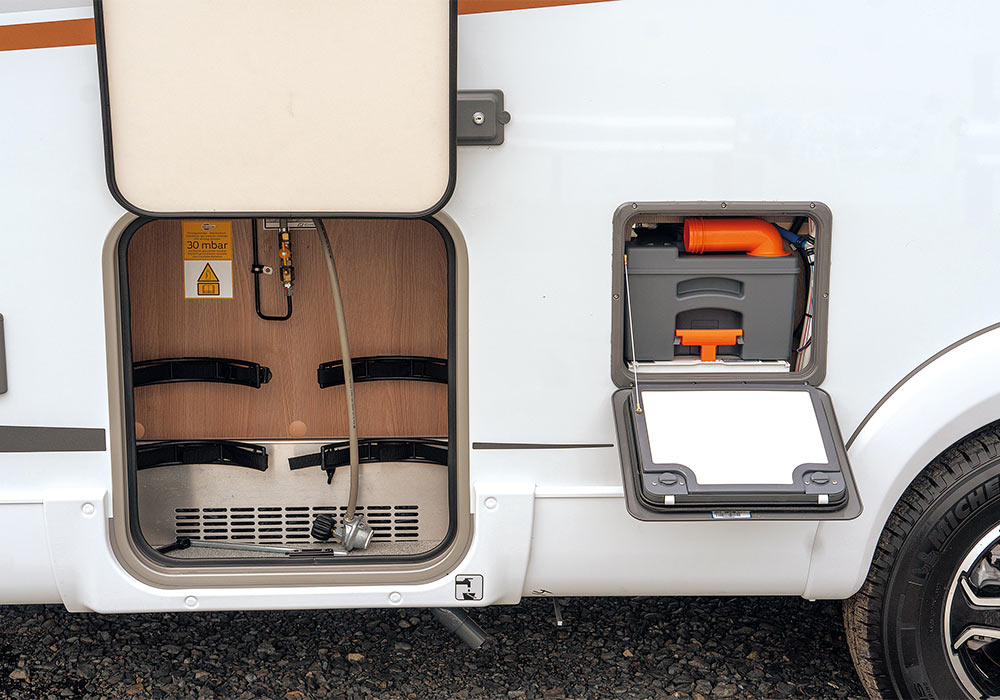
The TD 736 is ready for independent camping thanks to its dual 9kg gas bottle supply, twin 95Ah leisure batteries, and the 100W factory-fitted solar panel backed up by a 1000W inverter. The freshwater tank holds 120 litres, and a high-pressure pump feeds the taps and the shower before the water is collected by the 90-litre greywater tank.
A 4.5-metre Thule awning is ready for winding out above the side entry door and has a strip of LED lights below it. Well-equipped for outdoor living, there’s a gas outlet located just above the toilet cassette locker for connecting the BBQ, and an external 240V/12V power socket for the TV should you want to watch the 22-inch screen that comes with the motorhome from outside. This Freeview/Bluetooth/Chromecast-equipped TV can also be mounted facing the front lounge or the rear island bed inside.
The Bürstner Lyseo TD 736 Harmony Line comes fully certified for gas and electrical fitness as well as for self-containment. There’s a two-year Fiat warranty on the Ducato bits, backed up by Bürstner’s two-year warranty on their work, which also includes a 10-year guarantee that no water will penetrate the motorhome body. It all comes together as one of the finest 7.5-metre semi-integrated motorhomes available, and one of the few (so far) that offers a height-adjustable rear island bed.
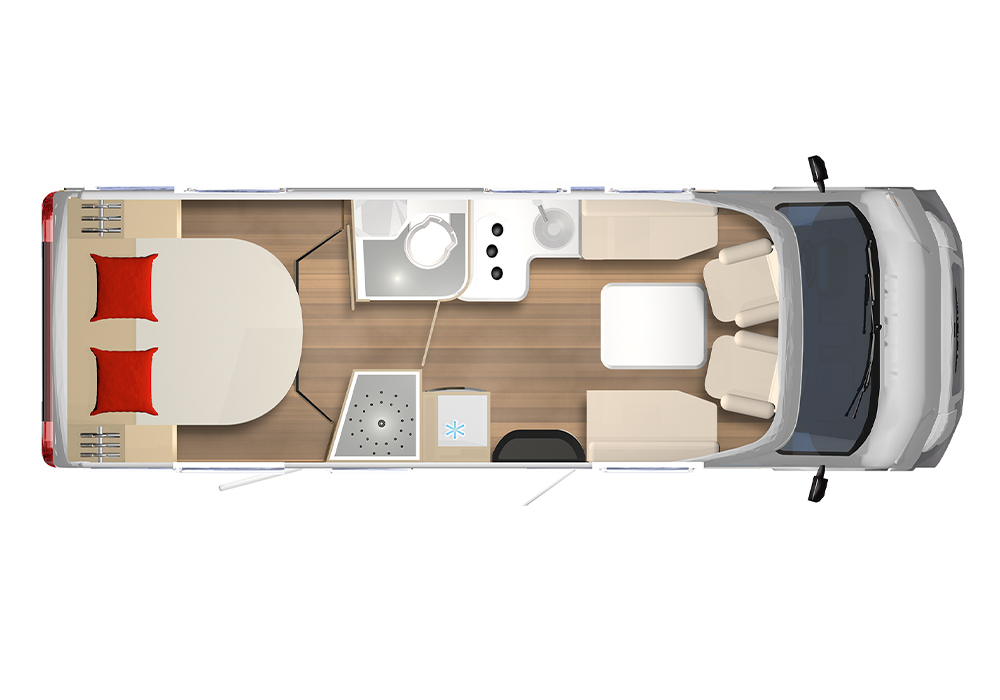
| Make and model | Bürstner Lyseo TD 736 Harmony Line |
|---|---|
| Chassis | Fiat Ducato-based cab/chassis, front wheel drive |
| Engine | 2.2L turbodiesel, 160hp |
| Gearbox | 9-speed automatic |
| Berths | 4 |
| Length/width/height | 7490mm/2300mm/2950mm |
| Fresh/hot/grey water | Fresh 120L/Hot 10L/Grey 90L |
| GVW/payload | 4250kg/895kg |
| Price | $234,900 |

